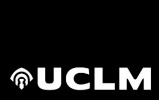Dynamical systems in biomedicine

15:00 – 15:20 – Analysing the entrainment dynamics of models of the central circadian clock / Presenting author: Franz Aschl.
15:20 – 15:40 – Spike-adding phenomena in bursting models: Dissecting the bifurcation skeleton / Presenting author: Lucía Pérez.
15:40 – 16:00 – Approximation of reproduction numbers of age-structured models / Presenting author: Francesca Scarabel.
16:00 – 16:20 – A differential geometric analysis of perpetual and equilibrium points multistable dynamical systems / Presenting author: Sam Subbey.
Arthropod biology

15:00 – 15:20 – Sensing electrical environments: the unique sense of electroreception / Presenting author: Ryan Palmer.
15:20 – 15:40 – Population dynamics of tick in Korea and the potential impact of climate change and control measures / Presenting author: Heejin Choi.
15:40 – 16:00 – Towards a generic tick life cycle model / Presenting author: Slimane Ben Miled.
16:00 – 16:20 – Pest detection from a biology-informed inverse problem and pheromone sensors / Presenting author: Thibault Malou.
Tumor control and therapies

15:00 – 15:20 – Optimal control of tumour growth to maximaze patient life expectancy / Presenting author: Byron Tzamarias.
15:20 – 15:40 – Modeling and cotrol of tumor growth: alternative approaches / Presenting author: Pasquale Palumbo.
15:40 – 16:00 – Optimal therapy for lung and brain cancers using intra- and intercelullar networks / Presenting author: Tamaki Wakamoto.
16:00 – 16:20 – Mathematical insights into cylic multidrug therapy: how temporally heterogeneous treatments can control phenotypically heterogeneous tumour / Presenting author: Artur César Fassoni.
Predator-prey models

15:00 – 15:20 – Qualitative analysis in a discrete-time model of competing prey with a shared predator / Presenting author: Debasis Mukherjee.
15:20 – 15:40 – Impact of predator-driven Allee and spatiotemporal effects on a simple predator-prey model / Presenting author: Kaushik Kayal.
15:40 – 16:00 – The wolverine and reindeer: on the role of prey senescence in predator-prey dynamics / Presenting author: Ludek Berec.
16:00 – 16:20 – Growing up and feeling like a loser. Impact of maturation delay on the eco-evolutionary dynamics of zero sum games in changing envionment / Presenting author: Krzysztof Argasinski.
Neurodegenerative diseases

15:00 – 15:20 – The synergistic interplay between amyloid beta and tau in Alzheimer’s disease. A mathematical model on the human connectome / Presenting author: Maria Carla Tesi.
15:20 – 15:40 – A network transport model for the progression of Alzheimer’s disease / Presenting author: Veronica Tora.
15:40 – 16:00 – A model for simulating plaques formation in Alzheimer’s disease/ Presenting author: Ezio Venturino.
16:00 – 16:20 – A virtual lab for Parkinson’s disease: modeling alpha-synuclein aggregation dynamics / Presenting author: Elena Righetti.
Population dynamics (animals)

15:00 – 15:20 – Incorporating heterogenity in farmer disease control behaviour into a livestock disease transmission model / Presenting author: Edward Hill.
15:20 – 15:40 – A simulation model for porcine diseases in a farrow-to-finish pig farm with intra-herd transmission through animal and farmer movements / Presenting author: Jerrold M. Tubay.
15:40 – 16:00 – Identifying environmental and ecological risk factors for highly pathogenic avian influenza in wild birds / Presenting author: Joe Hilton.
16:00 – 16:20 – Bioeconomic modelling for sustainable biological control against a cabbage pest / Presenting author: Frédéric Grognard.
Ecology and Metabolic Networks (I)

15:00 – 15:20 – Multistationarity for n-site mixed phosporylation network / Presenting author: Maya Mincheva.
15:20 – 15:40 – Optimal and model predictive of gene regulatory networks: Driving a positively autoregulated gene to bi-modal behaviour / Presenting author: Hamza Faquir.
15:40 – 16:00 – How centrality measures can reduce complexity of elementary conversion modes opportunities connecting network science and metabolic models / Presenting author: Zita Soons.
16:00 – 16:20 – Tractability challenges for biochemical network models / Presenting author: Chathranee Jayathilaka.
Epidemics and human behaviour (II)

10:40 – 11:00 – Spatial characterisation of residual disease in environmentally mediated drug resistance / Presenting author: Amy Milne.
11:00 – 11:20 – Mathematical modelling of stem and progenitor cell dynamics during ruxolitinib treatment of MPN patients. / Presenting author: Tobias Idor Boklund.
11:20 – 11:40 – Mathematical modeling of platelet formation in healthy individuals and blood cancer patients / Presenting author: Chenxu Zhu.
11:40 – 12:00 – Modelling laser-induced thermal ablation: incorporating tissue water concentration and its vaporization effects for liver cancer treatment / Presenting author: Federico Herrero Hervás.
Cancer (miscellaneous)

10:40 – 11:00 – Spatial characterisation of residual disease in environmentally mediated drug resistance / Presenting author: Amy Milne.
11:00 – 11:20 – Mathematical modelling of stem and progenitor cell dynamics during ruxolitinib treatment of MPN patients. / Presenting author: Tobias Idor Boklund.
11:20 – 11:40 – Mathematical modeling of platelet formation in healthy individuals and blood cancer patients / Presenting author: Chenxu Zhu.
11:40 – 12:00 – Modelling laser-induced thermal ablation: incorporating tissue water concentration and its vaporization effects for liver cancer treatment / Presenting author: Federico Herrero Hervás.
Pattern formation (I)

10:40 – 11:00 – Pattern formation in mechanochemical models / Presenting author: Daphne Nesenberend.
11:00 – 11:20 – Phase separation approach for investigating the impact of organic molcules and phosphate ions on formationof biosilica pattern in diatoms / Presenting author: Svetlana Petrenko.
11:20 – 11:40 – Turing and Wave instabilities in water-biomass-toxicity models for patterned vegetation dynamics/ Presenting author: Giancarlo Consolo.
11:40 – 12:00 – Pattern formation in stochastic reaction-difussion systems/ Presenting author: Fraser Waters.



